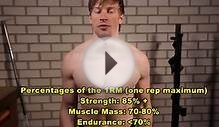
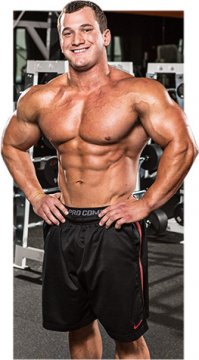 When I first got interested in gaining size in order to play football, I didn't worry much about fat gain. On one hand, the amount of running and exertion I experienced playing the sport made it almost impossible for me to gain noticeable fat. And even if I did, well, it was football. A little fat wasn't a crime; it was extra armor.
When I first got interested in gaining size in order to play football, I didn't worry much about fat gain. On one hand, the amount of running and exertion I experienced playing the sport made it almost impossible for me to gain noticeable fat. And even if I did, well, it was football. A little fat wasn't a crime; it was extra armor.
Everything changed once I switched my focus from football to bodybuilding. Now, at sub-8 percent body fat, my focus is on gaining muscle without fat, and since I don't have the huge amounts of conditioning work from football, I have to be much more careful about what I put in my body.
This is the point in the process where far too many people hit a wall. As a college student, I face no shortage of challenges, from sticking to a budget to making good choices when I'm out with friends, to saving time to focus on my studies. It definitely takes a little more planning and prep work to make it through those long days on campus.
But it can be done, and without breaking the bank. The key is simply to make quality your highest priority!
The Most Important Parts of Building Muscle
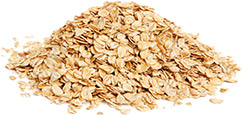 Eight words: Eat quality food. Increase your protein. Train hard.
Eight words: Eat quality food. Increase your protein. Train hard.
Those rules may seem obvious, but here's the catch: the order they're in matters. The fact that I stay lean eating sometimes more than 5, 000 calories each day surprises people. But, the more muscle you have, the more you have to feed. The key is feeding your muscles consistently with high-quality fuel.
So what do my macros look like, you ask? As an economics major, you'd better believe I can tell you the numbers. But I'd prefer to tell you the priorities, because the way they break down for everyone is going to be different. Here are the three guiding principles that determine what goes on my plate:
- Balance meals around lean protein
- Include nutrient-rich, low-glycemic carbs
- Enjoy generous portions of healthy fats
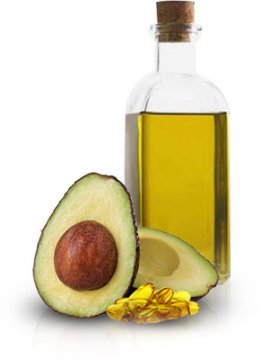 Now let's break down how they look in action, starting—where else?—with protein.
Now let's break down how they look in action, starting—where else?—with protein.
The Protein Way of Life
Protein, you may have heard, is what your muscles are made of. Well, not quite. The amino acids that make up protein are the building blocks of muscle, and your body needs—not wants, needs—these substances during and after training for repair and recovery. It breaks down the protein into the respective aminos, uses them for their various functions, and then you convert what doesn't get used. I break down a lot of tissue in my daily workouts, so balancing it out with adequate amounts of protein throughout the day is important.
I aim to take in 1.5 grams of protein per pound of bodyweight per day and divide that total number by the number of meals I'm going to eat. For me, that means I eat approximately 360 grams of protein each day. I spread this across 6 meals, which turns out to be approximately 60 grams of protein per meal, depending on the day. The reason I eat protein frequently throughout the day is that muscles are built outside the gym. I may spend an hour or two training each day, but it's the other 22 hours or so when I earn my results.
But as I said earlier, the amount of protein you eat is a secondary concern. Quality comes first, so think "what" before "how much." For me, the "what" is lean and not fried. If you adhere to eating lean, non-fried sources of protein, you maximize your chances of gaining maximum amounts of muscle with minimal increases in body fat.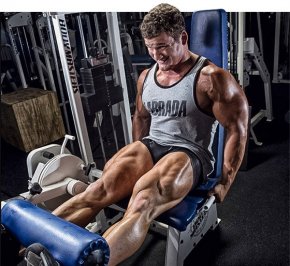 My favorite sources of lean protein are standard: egg whites, chicken breast, 98 percent or leaner ground beef, turkey, fish, and quality protein supplements like Lean Pro8.
My favorite sources of lean protein are standard: egg whites, chicken breast, 98 percent or leaner ground beef, turkey, fish, and quality protein supplements like Lean Pro8.
Another benefit of protein is that it doesn't raise insulin like carbs do. Insulin is a powerful hormone, and elevating levels at non-optimal times—basically any point in the day besides post-workout—can lead to increased fat storage. By eating lean protein often and carbs more strategically, I keep my insulin levels in-check until the time comes when I want to raise them.
Find the Sweet Spot
Protein is the cornerstone of my bodybuilding nutrition plan in that it determines how many meals I eat each day. But carbs and healthy fats are equally important—and so is their quality. One of the most common questions I get from people is if I eat a low-carb diet to stay sub 8-percent body fat. The answer: absolutely not!
On harder training days, I consume upward of 500 g of carbs. It all comes down to finding the amount of carbs your body can actually utilize and consuming them strategically, rather than letting cravings or social situations determine it for you. Out-of-control carb intake leads to unwanted spikes in insulin, which lead to fat gain. It's that simple.
Carbohydrates give my working muscles the energy to do their job. Without them, I would feel tired, and my gym sessions would definitely struggle as a result. Just like I approach my protein intake as a way to repair my muscles after training, I aim for the carb "sweet spot" where I can maximize energy and glycogen replenishment. And just like with protein, quality is crucial. My carbs come from high-fiber, high-nutrient foods. I include plenty of sweet potatoes, oatmeal, and brown rice, among others.
INTERESTING VIDEO


